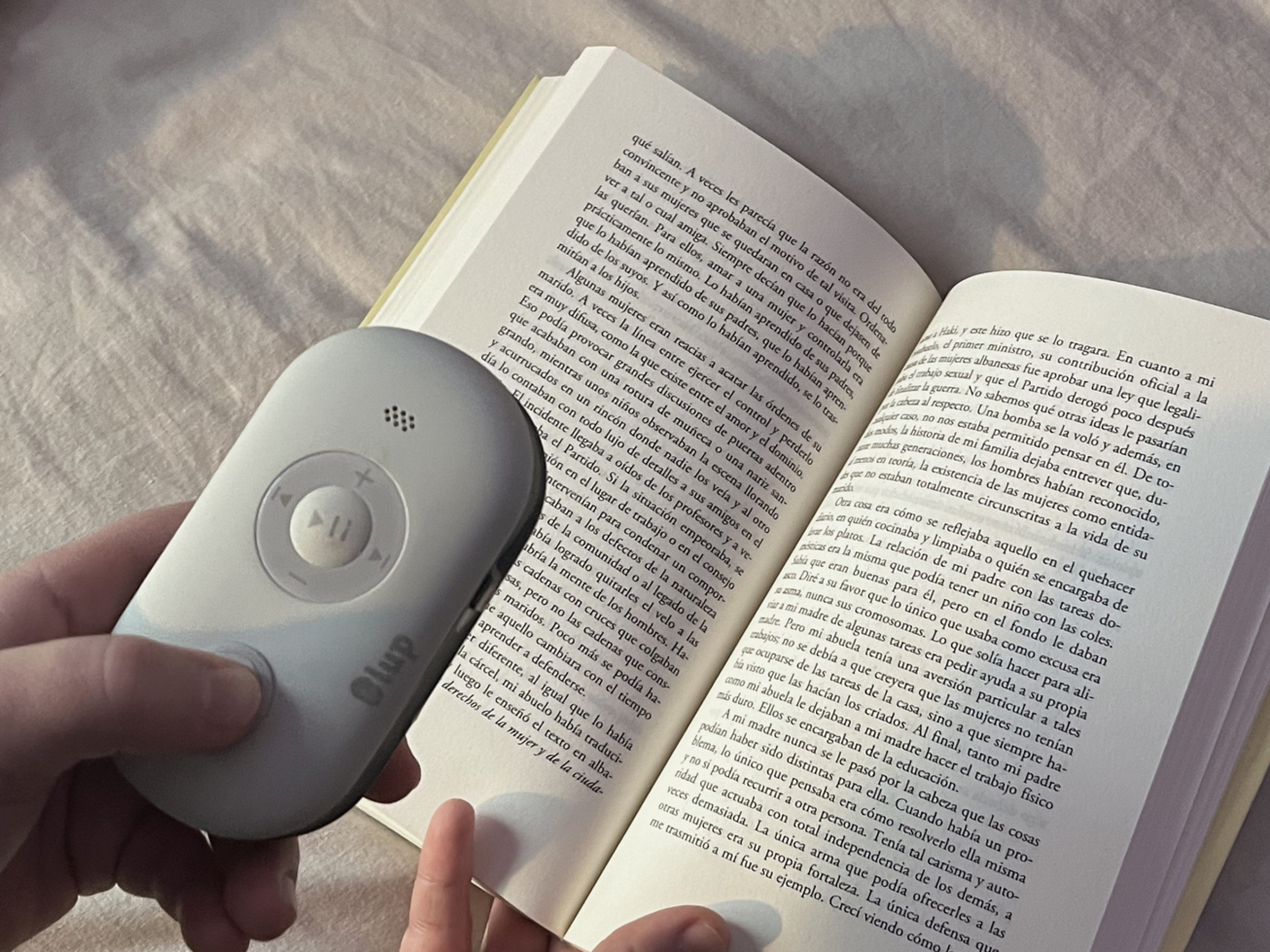
A device called Lup turns text into a voice thanks to artificial intelligence. It has the capacity to convert the Basque language into several languages, including the Basque language. It is a low-tech device that serves people far from technological advances. It is a project created and marketed for people with vision problems.

Lup has just marketed the product (www.lup.es, the information is not available in Basque). Its creators are three Basques: Computer engineer Eneko Calvo, Apurva San Juan and Uxue Manzisidor. The last two designed the project in the Entrepreneurial Leadership and Innovation degree of Mondragon Unibertsitatea.
It is a light and easy to take device in your hand. For daily use. It's a simple device, it doesn't have an internet connection. It picks up a one-click-focused text and turns it into a voice. The captured text is heard in a few seconds. Three-tier devices have been launched on the market. The Classic is the device that offers the least services and the Professional is the most complex device. Each device has the ability to turn the language into a different number. The most basic can be used in four languages: Basque, Catalan, Spanish and English. The Advanced has six languages and the professional 30.
Technology for those not nearby
Eneko Calvo explains with what purpose they have designed it: “Technology is becoming more and more developed and people sooner or later enter that speed, but there are a kind of people who don’t reach the level of those advanced technologies or don’t know them or don’t have them available. It’s a device for them.” For Calvo, people with these characteristics are able to use a device like the one they've designed. He says that this type of technology is used in industry, but that they know very few applications at the service of citizens. The aim is to provide a service to people with learning difficulties. These are three groups of people: children with dyslexia problems, the elderly and visually impaired.
Offer the best quality in Basque
Conversions in Basque offer a lower level. We asked Calvo about this and he replied: “For the audios we use synthetic voices and have been working for many years on the development of the synthetic voice in other languages (not all). They also talk to the Basque Country, but less years, and that is a disadvantage.” They contacted the research group of the UPV/EHU BukLab, which is dedicated to language technologies, among other things, synthetic voices. The synthetic voices developed by BukLab have been used for the Lup device. Calvo says they have had to choose between quality and speed: “Quality synthetic voices can also be achieved in Euskera, but it is difficult to make a rapid conversion. To get a quick conversion, the system needs some features, memory, etc., and in such a small tool not all of that comes in. On the computer, for example, you can do it. You have to choose one or the other and we have prioritized speed.”
The first version of the device has just been released and the product is now being made known. The tool can only be seen on the web and the goal of creators is to look for opportunities to show the product in physical stores. Calvo has ensured that they want to continue improving the product and that there will also be new versions.